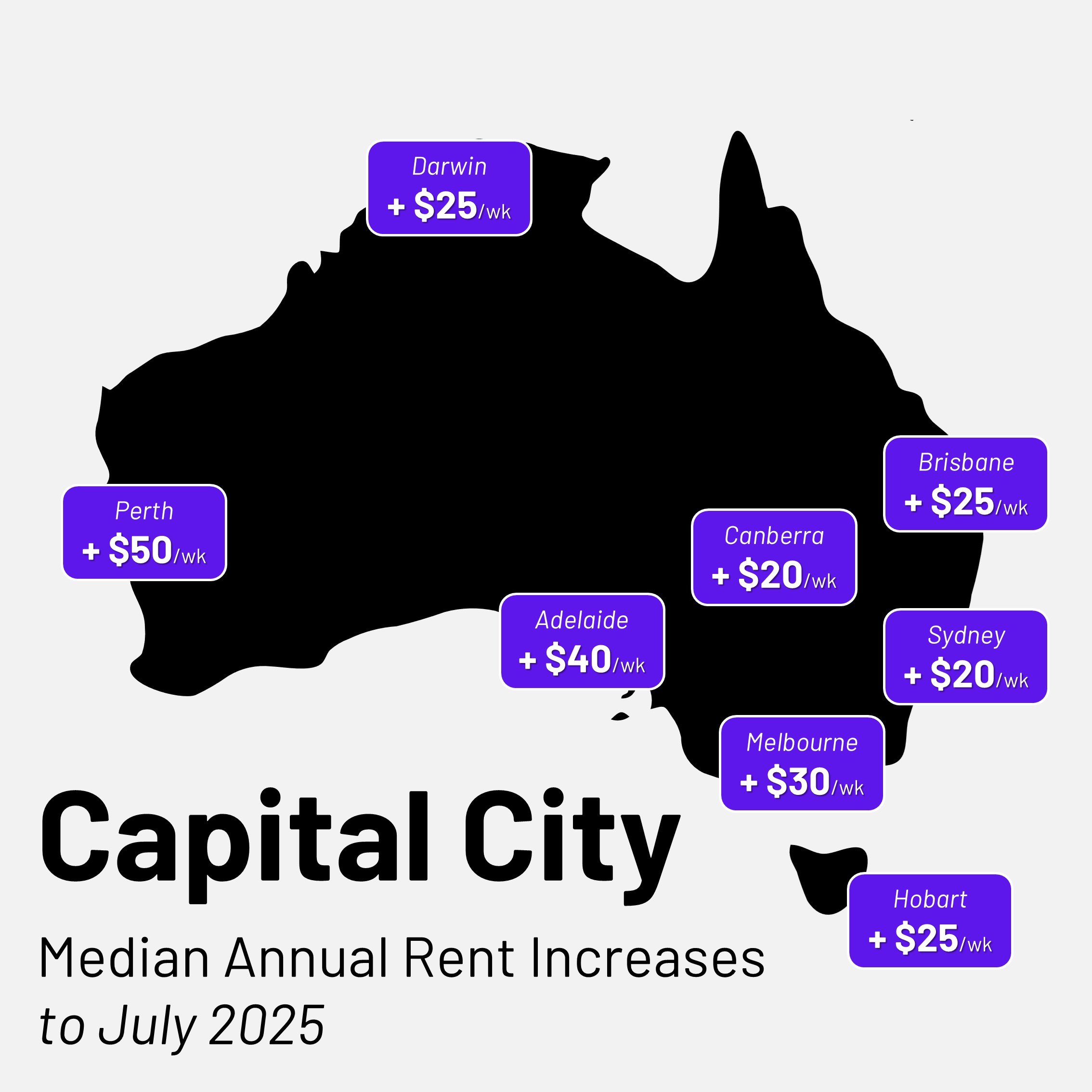
Your home for the latest property insights.
Drawn from real market data and updated regularly.

How many bathrooms do I need?
In decades past, many Australian homes had just one bathroom for the whole family – and people managed. Today, however, having at least two bathrooms (or at minimum an extra toilet) is often seen as a necessity in family homes. Determining how many bathrooms you need comes down to the size of your household, your lifestyle, and yes, your tolerance for morning line-ups at the loo! Let’s dive into considerations for finding the right number of bathrooms.

What is rentvesting?
Let’s break down how rentvesting works and why so many people – especially younger Australians – are considering it.

July Rental Pulse: National Rents Touch $650 While Wages Tread Water
I have just finished crunching the July 2025 update of our national Rent Index, and the headline number is impossible to miss. The median advertised rent across Australia now sits at $650 per week, taking the national index to 175.7. In plain terms, typical rents are almost 76 percent higher than at the start of 2011, while the national wage index has lifted only 43 percent in the same window. The gap between what landlords charge and what workers earn has never been wider in the dataset I follow.

What is the oldest age you should buy a home?
Buying a home later in life is increasingly common, and there’s technically no fixed “too old” age to purchase property. Australian law even prohibits age-based lending discrimination. In simple terms, you can legally take out a mortgage at any age if you meet the financial requirements. However, lenders will look closely at your situation if you’re older, especially if the loan would run past a typical retirement age (often considered around 65-75). So while there’s no hard cut-off, practical hurdles start to appear as you age.

When a Property Is Sold… What Happens to Your Lease?
Few things unsettle renters more than hearing “the property is being sold.” It’s a scenario that conjures images of forced moves and uncertainty. But take heart: in Australia, a sale does not mean you automatically have to move out. Your lease carries legal weight that doesn’t evaporate when the “For Sale” sign goes up. In fact, tenancy laws in every state provide protections so that tenants aren’t left high and dry when the landlord decides to sell. This post breaks down exactly what your rights are, and how to navigate the process with confidence and clarity.

What is a Rental Ledger?
Empowering yourself starts with understanding your rent payments. A rental ledger is essentially the financial diary of your tenancy – a detailed record of every rent payment made, when it was paid, and what period it covered. Reading it might feel like deciphering another language at first, but with a little guidance you can turn this document into a powerful tool. Not only can it help you catch mistakes or overcharges early, it also gives you confidence that you’re on top of your tenancy finances.


Get up-to-date insights on rent prices, rent increases, and rental trends across Australia. See how rent in Sydney, Melbourne, Brisbane, Adelaide, and Perth is trending, track rent affordability, and download rental data for free.